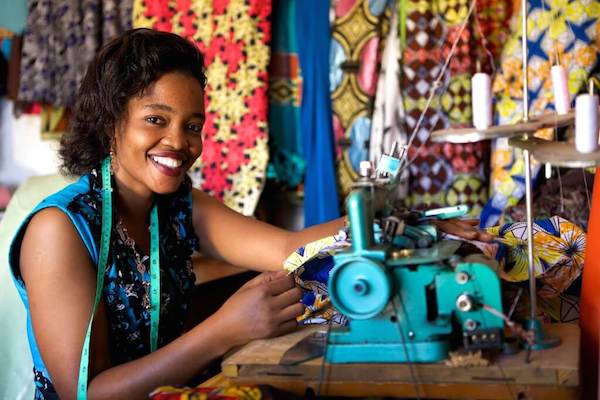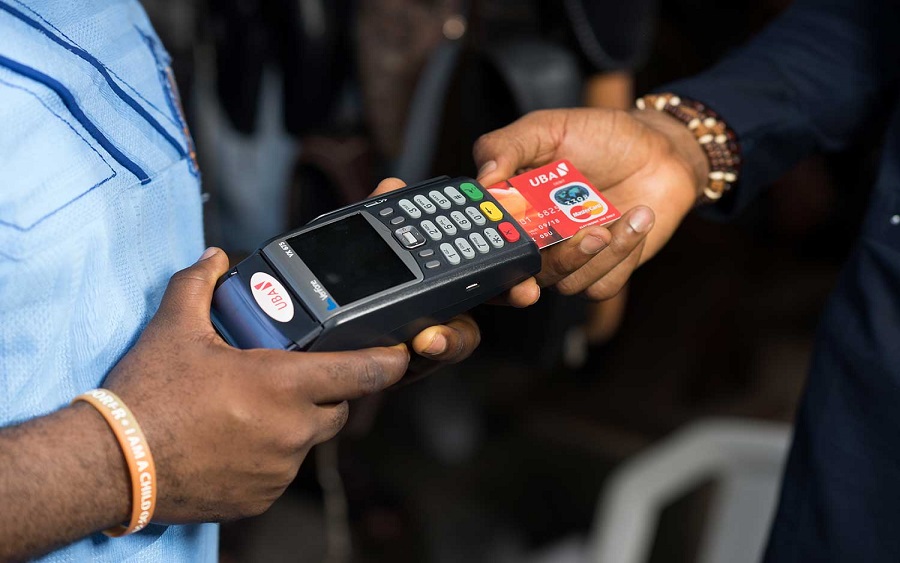Starting an online business can feel like stepping into a vast, uncharted jungle. You’re excited, a little nervous, and maybe even wondering if you’ve got what it takes to make it work. I felt the same way when I decided to try selling simple items online to make some extra cash. To my surprise, I hit my first ₦100,000 in sales faster than I expected. It wasn’t a walk in the park, but it was simpler than I thought it would be. Let me walk you through my journey, from picking the right items to sell to turning a side hustle into real money, all in a way that might inspire you to give it a shot too.
Finding the Right Items to Sell
The first step was figuring out what to sell. I didn’t have a big budget or a warehouse full of inventory, so I needed items that were affordable, easy to source, and in demand. I started by looking around my own home for inspiration. Old clothes, unused gadgets, and even some handmade crafts caught my eye. But I didn’t want to just clear out my closet; I wanted something I could sell consistently.
So, I turned to research. I spent hours scrolling through online marketplaces like Jiji, Jumia, and even Instagram to see what people were buying. I noticed that simple, everyday items like phone accessories (chargers, earphones, cases), small kitchen gadgets (manual juicers, vegetable choppers), and fashion accessories (beaded bracelets, hair clips) were hot. These items were small, lightweight, and didn’t cost much to buy in bulk, which meant lower shipping costs and higher profit margins.
To narrow it down, I asked myself three questions: What can I source cheaply? What’s trending in my area? And what can I sell without needing a ton of expertise? I settled on phone accessories and handmade beaded bracelets. Phone accessories were a no-brainer because everyone needs them, and the bracelets gave me a chance to add a personal touch since I could make them myself.
Sourcing Products Affordably
Once I decided on my products, I needed to find suppliers. This part felt a bit overwhelming at first because I didn’t know where to start. I began by visiting local markets in my city. Places like Computer Village in Lagos and smaller wholesale shops had a ton of phone accessories at low prices. For example, I found basic phone cases for as low as ₦500 each, which I could sell for ₦1,500 to ₦2,000. The markup was decent, and the items were small enough to store in a corner of my room.
For the beaded bracelets, I bought beads and materials from a craft store and watched a few YouTube tutorials to learn how to make simple but attractive designs. I kept my designs minimal, using colorful beads that appealed to young women my age. Each bracelet cost me about ₦300 to make, and I priced them at ₦1,000 to ₦1,500. The goal was to keep my costs low while offering something people would want to buy.
I also explored online platforms like AliExpress for phone accessories. While the prices were tempting, I realized shipping times and customs fees could eat into my profits, so I stuck mostly to local suppliers for faster turnaround. My advice? Start with what’s available locally to avoid delays, especially when you’re just starting out.
Choosing the Right Platform
With my products ready, I needed a place to sell them. I considered physical sales, but I didn’t have the time or resources to set up a shop or hawk items around. Online was the way to go. I looked at platforms like Jiji, Jumia, and Konga, which are popular in Nigeria. Jiji was my first choice because it’s free to list items, and it’s super popular for secondhand and new goods. I also set up an Instagram page since it’s great for showcasing visuals, especially for my bracelets.
Setting up on Jiji was straightforward. I created a free account, took clear photos of my items with my phone, and wrote simple descriptions. For example, for a phone case, I’d write: “Brand new iPhone 12 case, durable and stylish, ₦2,000.” I made sure to include keywords like “affordable,” “durable,” and “trendy” to catch attention. On Instagram, I posted photos and short videos of my bracelets, showing how they looked when worn. I used hashtags like #NigerianFashion and #HandmadeJewelry to reach more people.
One thing I learned quickly was the importance of good photos. I didn’t have a fancy camera, so I used natural light near a window and a plain background (usually a white bedsheet). It made my items look professional without costing a dime. I also kept my Instagram page consistent, posting at least three times a week to stay visible.
Pricing for Profit and Appeal
Pricing was tricky. I wanted to make a profit but also keep my items affordable. For phone accessories, I checked what others were charging on Jiji and priced mine slightly lower to attract buyers. For example, if a charger was selling for ₦3,000 elsewhere, I’d list mine at ₦2,500 but highlight its quality in the description. For the bracelets, I priced them based on the vibe they gave off. Simple designs were ₦1,000, while fancier ones with charms went for ₦1,500.
I also offered small discounts for bulk purchases, like three phone cases for ₦5,500 instead of ₦6,000. This encouraged people to buy more, and it helped move inventory faster. One tip: don’t undervalue your work. I made the mistake early on of pricing some bracelets too low, and it made people think they were cheap quality. Find a balance where you’re competitive but still making a good profit.
Marketing on a Budget
Marketing was where I had to get creative. I didn’t have money for paid ads, so I leaned heavily on free methods. On Instagram, I engaged with followers by responding to comments and messages quickly. I also joined local WhatsApp groups for small businesses and shared my products there. I was careful not to spam, though; I’d introduce myself first and only share when it felt natural.
Word-of-mouth was a game-changer. I told friends and family about my business and asked them to spread the word. I even gave a few bracelets as gifts to people who had big social circles, and they posted about them online, tagging my page. That brought in my first few customers. Another trick was offering a small freebie, like a keychain, for anyone who referred a friend. It cost me little but built loyalty.
I also learned to tell a story with my products. For the bracelets, I shared short posts about what inspired each design, like “Made this sunny yellow bracelet to brighten your day!” People love buying things that feel personal, and it helped me stand out from bigger sellers.
Handling Sales and Customer Service
Once the orders started coming in, I had to figure out logistics. For Jiji sales, I used their messaging system to communicate with buyers. Most people wanted to meet in person for delivery, so I chose safe, public locations like malls or bus stops. For Instagram orders, I used WhatsApp to confirm details and arranged deliveries through local bike services, which cost about ₦500 to ₦1,000 per trip.
Customer service was key. I made sure to respond to inquiries within an hour, even if it was just to say I’d get back to them. I also followed up after deliveries to ask if everything was okay. One time, a customer got a faulty charger, and I replaced it for free. It cost me a bit, but they left a glowing review on Jiji, which brought in more sales.
Packaging was another small but important detail. I wrapped the bracelets in tissue paper and added a handwritten thank-you note. For phone accessories, I used small, sturdy envelopes to keep them safe. These little touches made customers feel valued, and many came back for more.
Scaling Up to ₦100,000
My first sale was a single phone case for ₦2,000, and it felt like a huge win. From there, I tracked every sale in a notebook to stay organized. After a month, I was making about ₦10,000 to ₦15,000 a week, mostly from phone accessories since they sold faster. The bracelets were slower but had higher margins, so I kept pushing both.
To hit ₦100,000, I focused on consistency. I listed new items every week, even if it was just a different color of phone case or a new bracelet design. I also reinvested some profits into buying more stock, which let me offer more variety. By month three, I was selling about 20 phone accessories and 10 bracelets a week, averaging ₦25,000 weekly. It took me about four months to cross the ₦100,000 mark.
One big boost came from a small Instagram giveaway. I offered a free bracelet to one winner if they followed my page and tagged three friends. The post got shared a lot, and I gained over 200 new followers, some of whom turned into customers. It cost me ₦1,000 to run but brought in way more in sales.
Challenges Along the Way
It wasn’t all smooth sailing. Some customers haggled aggressively, which was frustrating. I learned to stand firm on my prices unless it was a bulk order. Another issue was unreliable suppliers. One time, I ordered phone cases, and half were defective. I had to eat the cost and find a new supplier. Also, balancing this with my day job was tough. I’d stay up late answering messages or making bracelets, but I got better at managing my time.
The biggest lesson was patience. Sales were slow at first, and I doubted myself. But sticking to a routine of posting, engaging, and delivering quality products paid off. Every small sale built my confidence and taught me something new.
Moving Forward
Hitting ₦100,000 was a milestone, but it’s just the start. I’m now looking at ways to grow, like adding more products (maybe hair accessories or small tech gadgets) and exploring paid ads to reach a bigger audience. I’m also saving up to create a simple website to make my brand look more professional. The journey has taught me that you don’t need a lot of money or experience to start selling online; you just need to start small, stay consistent, and keep learning.
If you’re thinking about starting your own online hustle, don’t wait for the perfect moment. Pick something simple, test the waters, and build from there. It’s not about making millions overnight; it’s about taking one step at a time and watching it add up.
Summarized Key Points
- Choose simple, in-demand items: Start with affordable, lightweight products like phone accessories or handmade crafts that are easy to source and sell.
- Source locally for speed: Use local markets or suppliers to keep costs low and avoid long shipping times.
- Pick the right platform: Use free platforms like Jiji or Instagram to reach customers without upfront costs.
- Price smartly: Balance competitive pricing with good profit margins, and offer discounts for bulk buys.
- Market creatively: Leverage free tools like WhatsApp groups, word-of-mouth, and storytelling to attract customers.
- Prioritize customer service: Respond quickly, deliver reliably, and add personal touches like nice packaging.
- Stay consistent: Keep listing new items, reinvest profits, and be patient as sales grow.
- Learn from challenges: Expect hiccups like unreliable suppliers or slow sales, but use them to improve.
- Plan for growth: Once you hit your goal, explore new products, platforms, or marketing to keep scaling.



